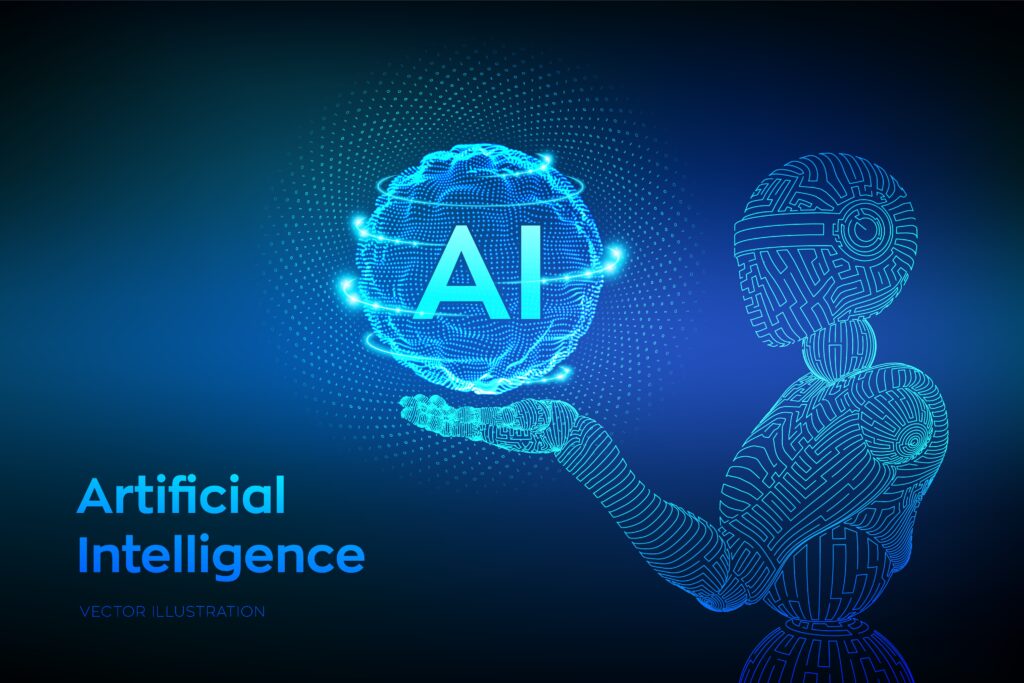Introduction:
Artificial Intelligence (AI) has revolutionized various industries by automating tasks, providing insights, and enhancing decision-making processes. To flourish in this dynamic field, possessing the top 15 skills to dominate the AI Industry is very crucial. In this article, we will explore the top 15 technical skills required in the AI field, helping you navigate your path to becoming an AI expert.

Core Programming Skills: Top 15 skills to dominate the AI Industry
Python
Python is the comparatively easy language for AI development due to its simplicity and comprehensive libraries. It enables quick prototyping and is widely used in machine learning and data science projects. Python is generally used for developing websites and softwares, data analysis, data visualisation and task automation. Since it’s comparatively easy to learn, Python has been widely used by many non-programmers, such as accountants and scientists, for a most everyday tasks.
R
R is a powerful tool for statistical analysis and data visualization, making it essential for AI professionals working on data-driven projects. R is a most liked programming language that permits user to skillfully handle large amounts of data, perform a range of statistical and analytic computing tasks and generate publication-quality visualizations in fields like data science, finance, academia, and more. R is powerful, flexible, and extensible.
Java
Java is known for its scalability and performance, making it suitable for large scale AI applications. It’s generally used in developing enterprise-level AI solutions.
C++
C++ provides control over system resources and is used in AI for performance-critical applications, such as real-time simulations and games development.
2) Mathematics and Statistics
Linear Algebra
Linear algebra is the foundation of many AI algorithms, including machine learning and neural networks. Understanding vectors, matrices and transformations etc is essential.
Calculus
Calculus, particularly differentiation and integration, is essential for optimizing AI models. It helps in understanding the changes in parameters and reducing errors.
Probability
Probability theory aids in making predictions and handling uncertainty in AI models. It’s fundamental for algorithms like Bayesian networks and Markov chains.
Statistics
Statistics is vital for data analysis, hypothesis testing, and interpreting results. It underpins many AI techniques, from simple regression to complex deep learning models.
3) Machine Learning and Deep Learning

Machine learning is a branch of artificial intelligence that provides machines with the ability to automatically learn from data and past experiences while recognizing patterns to make predictions with very less human mediation & involvement.
Deep learning is a well-organised procedure in artificial intelligence (AI) that educates computers to process data in a way that is inspired by the human’s brain. Deep learning models can recognize complex patterns in pictures, text, sounds, and other different data to produce correct & precise insights and predictions. Deep learning uses artificial neural networks to execute advanced & complicated computations on large amounts of data. It is a branch of machine learning that works based on the structure and functionality of the human’s brain. Deep learning algorithms educates machines by learning from examples. So it is one of the necessary skill in the Top 15 skills to dominate the AI Industry
Understanding Algorithms
Knowledge of machine learning algorithms, such as decision trees, support vector machines, and k-nearest neighbors, is very important for building AI models.
Neural Networks
Neural networks are the important part of deep learning. Understanding how they work and how to train them is critical for developing advanced AI systems.
Supervised and Unsupervised Learning
Supervised learning includes training models with labeled data, while unsupervised learning copes with unlabelled data. Both are very important for different AI applications.
Reinforcement Learning
Reinforcement learning focuses on training models through rewards and penalties. It’s used in applications like robotics and game AI.
4) Data Science and Analytics
Data Wrangling
Data wrangling includes cleaning and preparing data for analysis. It’s a crucial step in any AI project, ensuring the quality and relevance of data. Data wrangling makes sure that data is reliable and complete before users analyze it and use it to generate insights. Due to this process, those insights are established on accurate, best-quality data.
Data Visualization
Data visualization is deals with pictorial or graphical representation of given information and input data. By using visual elements like graphs, charts and maps, data visualization tools furnish an accessible way to see and identify & realize trends, outliers, and patterns in data. In addition to that, it provides an excellent way for employees or business owners to show data to non-technical users without confusion. Data visualization tools like Matplotlib and Seaborn, help in presenting data insights in the effective way. Visualizations are very important for showing results and in communicating findings.
Big Data Technologies
Big data technologies, such as Hadoop and Spark, enable handling and processing large datasets, which is vital for AI projects that require extensive data analysis. So definitely Data Science is one of the Top 15 skills to dominate the AI Industry
5) Natural Language Processing (NLP)
Text Processing
Text processing techniques, like tokenization and stemming, are essential for analysing and understanding textual data in NLP applications.
Sentiment Analysis
Sentiment analysis helps in determining the emotional tone of textual data. It’s very commonly used in monitoring of the social media and customer’s response & feedback.
Speech Recognition
Speech recognition deals in converting spoken language into text. It’s a key technology behind virtual assistants and voice-controlled applications.
6) Computer Vision
Image Processing
Image processing techniques, such as filtering and edge detection, are crucial for analyzing and interpreting visual data.
Object Detection
Object detection involves identifying and locating objects within an image. It is used in applications like autonomous driving and surveillance systems.
Convolutional Neural Networks (CNNs)
CNNs are specific technical neural networks for processing visual data. They are the important part of many computer related applications, including image classification and object detection.
7) AI Frameworks and Libraries
TensorFlow
TensorFlow is a most liked open-source framework for machine learning and deep learning. It furnishes tools for building and training AI models.
Keras
Keras is a high-level neural networks API that operates on top of TensorFlow. It’s user-friendly and it simplifies the procedure of building complex models.
PyTorch
PyTorch is another mostly used deep learning framework. It is specified for its flexibility and user friendliness, mainly in the field of research and prototyping.
Scikit-learn
Scikit-learn is a library for machine learning in Python language. It furnishes simple and efficient tools for data analysis and data modeling.
8) Software Development and Version Control
Git
Git is a version control system essential for tracking changes in code and collaborating with other developers. It’s a fundamental tool for AI projects.
Agile Methodologies
Agile methodologies, such as Scrum and Kanban, help in managing AI projects effectively. They encourage iterative development and continuous enhancement.
Continuous Integration/Continuous Deployment (CI/CD)
CI/CD practices automate the process of integrating and deploying code changes, ensuring smooth and reliable delivery of AI applications.
9) Cloud Computing
AWS
Amazon Web Services (AWS) offers a range of cloud services for AI, including computing power, storage, and machine learning tools.
Google Cloud
Google Cloud provides AI and machine learning services, such as TensorFlow and AutoML, enabling scalable and efficient AI development.
Azure
Microsoft Azure offers cloud-based AI services and tools, making it easier to build, deploy, and manage AI applications
10) Database Management
SQL
SQL (Structured Query Language) is crucial for handling and querying relational databases. It’s essential for storing and retrieving data in AI projects.
NoSQL
NoSQL databases, such as MongoDB and Cassandra, handle unstructured data and are used in AI projects that require flexible and scalable data storage.
Hadoop
Hadoop is a framework for allocated storage and processing of large amount datasets. It’s used in AI projects that involve big data analytics.
Spark
Apache Spark is a important analytics engine for big data processing. It’s widely used in AI for real-time data analysis and machine learning.
Robot Operating System (ROS)
For writing robot software, ROS is considered as a flexible framework. It’s essential for developing AI-driven robotic applications.
Automation Tools
Automation tools, like UiPath and Blue Prism, help in automating repetitive tasks, improving efficiency, and reducing human intervention in AI processes.
12) Ethics and Bias in AI
Fairness in AI
Ensuring fairness in AI involves addressing biases in data and algorithms. It’s crucial for building ethical and unbiased AI systems.
Ethical AI Practices
Ethical AI practices involve developing AI systems that are transparent, accountable, and aligned with human values.
13) AI in Business Applications
AI for Customer Service
AI-driven chatbots and virtual assistants enhance customer service by providing quick and accurate responses to customer queries.
AI in Marketing
AI helps in analysing consumer behaviour, personalizing marketing campaigns, and predicting trends, making it a powerful tool in marketing.
AI in Finance
AI is used in finance for tasks such as fraud detection, algorithmic trading, and credit scoring, improving efficiency and accuracy.
14) Cybersecurity
Secure Coding Practices
Secure coding practices are essential for developing AI applications that are resistant to cyber threats and vulnerabilities.
AI in Cybersecurity
AI enhances cybersecurity by identifying and mitigating threats in real-time, providing robust protection against cyberattacks.
15) Soft Skills for AI Professionals
Problem-Solving
Strong problem-solving skills enable AI professionals to tackle complex challenges and develop innovative solutions.
Communication
Effective communication skills are very important for explaining AI concepts, results and findings to non-technical stakeholders.
Team Collaboration
Collaboration skills are essential for working effectively in multidisciplinary teams, ensuring the success of AI projects.
Conclusion
The field of artificial intelligence is extremely big and developing rapidly, requiring a various set of technical skills. So The Top 15 skills to dominate the AI Industry. From core programming languages and mathematical foundations to advanced machine learning techniques and righteous considerations, proficiency in these skills can open the way for a successful career in AI. As AI continues to integrate into various industries, staying updated with the latest trends and technologies is very important for maintaining a competitive edge.
FAQs
- What programming languages are essential for AI development?
- Python, R, Java, and C++ are among the most important programming languages for AI development.
- Why is mathematics important in AI?
- Mathematics, including linear algebra, calculus, and probability, forms the foundation of many AI algorithms and models.
- What are some common applications of AI in business?
- AI is used in business for customer service, marketing, finance, and more, improving efficiency and decision-making.
- How does AI contribute to cybersecurity?
- AI enhances cybersecurity by detecting and mitigating threats in real-time, providing robust protection against cyberattacks.
- What are the ethical considerations in AI?
Ethical considerations in AI include ensuring fairness, transparency, accountability, and alignment with human values. So every AI Enthusiasts should learn these Top 15 skills to dominate the AI Industry.
You also may like: Top 12 Programming Languages to Master AI